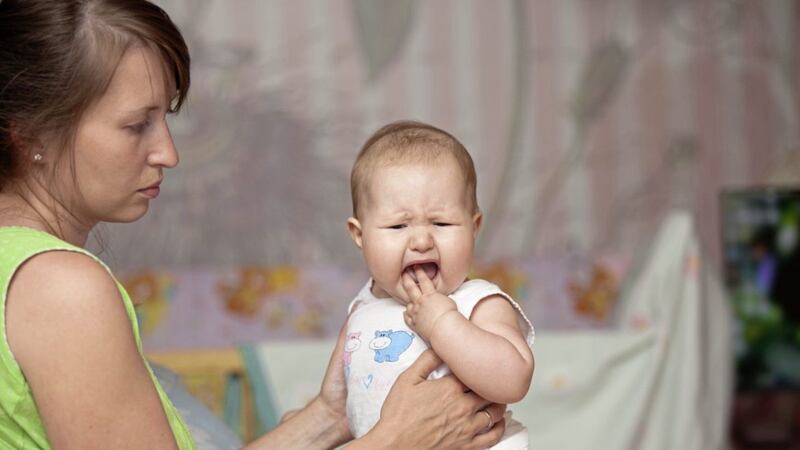“THERE can be no excuse for ascribing fever, fits, diarrhoea, bronchitis, or rashes to teething.”
That was written in the British Medical Journal in 1975. Maybe you read it with an uncomfortable feeling, as you strongly believe that the baby teeth pushing through the gums do in fact cause those different problems.
There are many studies of teething that don’t back up the idea that a tooth cutting through causes high fevers. In fact, the notion that they do might lull you into a false sense of calm, believing that such symptoms are down to 'teething problems'. A high temperature may in fact be a symptom of an infection in a baby.
Having more fevers at this age goes hand in hand with this exploration phase of a baby, when everything goes into their mouth. This exposure is stimulating the baby’s own immune system, strengthening it, while at the same time the mother’s immunity in the baby’s body is reducing.
However, there are some mild symptoms such as increased biting, drooling, gum-rubbing, sucking, irritability, wakefulness, ear-rubbing, facial rash, slight loss of appetite for solids, and mild temperature elevations that have been shown to be connected with teething in some babies.
In roughly one in 2,500 births a baby will be born already having teeth. These are called neonatal teeth. For the rest of the babies the deciduous milk teeth erupt between the third and 12th months. As with much of development, there is a normal range of time for things to happen so try not to fret if the teeth take a bit longer to emerge.
There are many products to help with teething and some of them can be chilled. Avoid putting anything into the freezer, as a frozen teething ring could stick to the baby’s gums and cause damage.
Also be aware of what the teething product is made from as there are incidences of apparently natural products causing damage.
In 2017 there was a report made to the Center for Disease Control where an infant ended up with poisoning after chewing on a magnetic homeopathic bracelet – unfortunately the beads in the bracelet contained lead.








